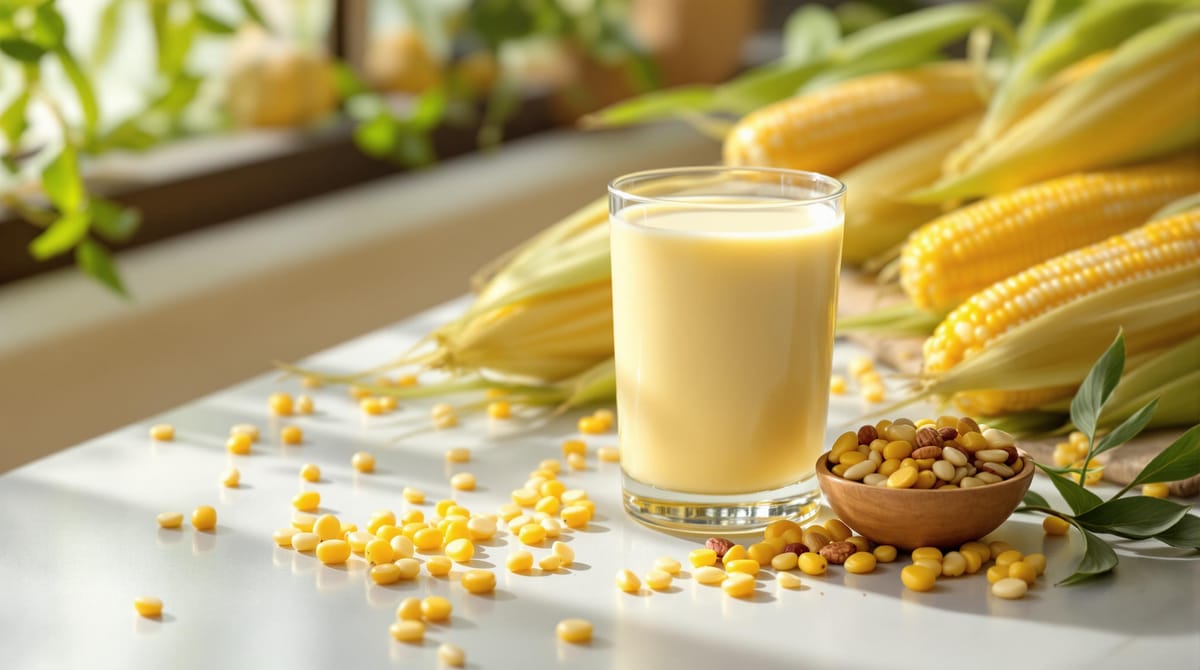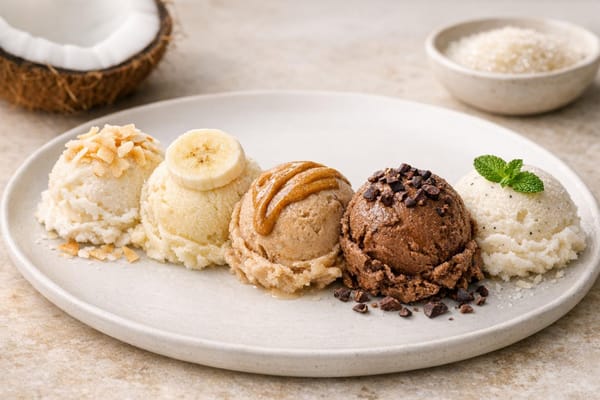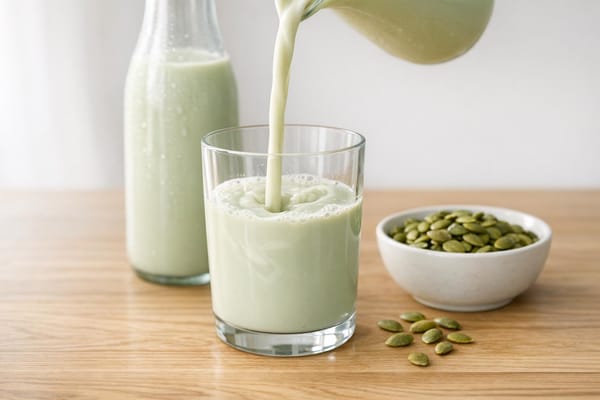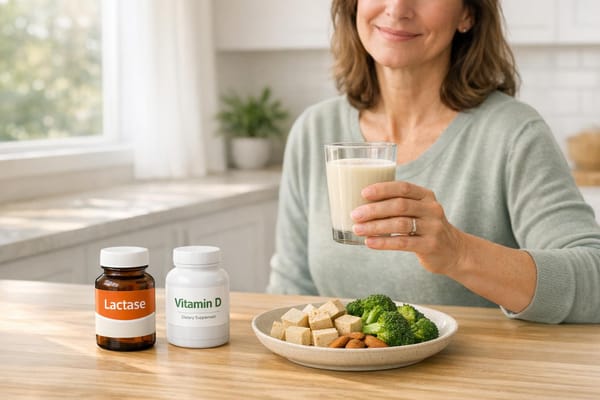Corn Milk Nutrition: What to Know
Explore the nutritional benefits of corn milk, a dairy-free alternative packed with vitamins and minerals, perfect for lactose intolerance and plant-based diets.

Corn milk is a dairy-free drink made by blending corn kernels with water and straining the mixture. It’s a great option for people with lactose intolerance, plant-based diets, or dairy allergies. Packed with B-vitamins, vitamin C, iron, calcium, and potassium, it supports gut health, heart health, and digestion. You can buy it in stores (often with additives) or make it at home for full control over ingredients. If you’re lactose intolerant but still consume dairy, lactase supplements like Milktab can help with digestion.
How To Make Healthy Corn Milk
Nutrition Facts
Understanding the nutritional makeup of corn milk can help you make better dietary decisions. This plant-based drink offers a unique mix of nutrients compared to traditional dairy milk.
Basic Nutrients
Corn milk contains a mix of calories, carbohydrates, protein, and fiber. While it has less protein than dairy milk, it still provides a small amount of plant-based protein and fewer calories. Its combination of nutrients makes it a light yet satisfying option.
Micronutrients
Corn milk is naturally rich in several vitamins and minerals. It contains B-vitamins like thiamin and vitamin B6, which play a role in energy production and maintaining a healthy nervous system. It also provides vitamin C, iron, calcium, and potassium, all of which contribute to overall health.
Some commercial corn milk products are fortified to increase their nutritional value. For those watching their sugar intake, unsweetened options are widely available.
Health Effects
Corn milk can be a nutritious addition to your diet, thanks to its rich nutrient content. Here's a closer look at how it may benefit your health.
Gut and Heart Health
The fiber in corn milk can help maintain a healthy digestive system and support regular bowel movements. Additionally, its nutrient content may contribute to better heart health.
Immune Function and Weight Management
Corn milk also provides nutrients that could support your immune system. When included in a balanced diet, it may help with weight management. Plus, since it’s naturally lactose-free, it’s a suitable option for those with dairy sensitivities, making it easier to digest.
Safety and Warnings
Corn milk offers nutritional benefits, but it's important to consider safety before making it a regular part of your diet.
Allergy Risks
While corn allergies aren't as common as some others, they can still cause serious reactions for those affected. Symptoms might include hives, swelling around the mouth, trouble breathing (like wheezing or nasal congestion), or stomach issues such as nausea and vomiting. In severe cases, anaphylaxis is possible. If you notice any of these symptoms after drinking corn milk, stop immediately and consult a healthcare provider. For those with a known corn allergy or sensitivity, it's best to avoid corn milk entirely.
Store-Bought vs. Homemade
Store-bought corn milk often contains additives to enhance texture, flavor, or shelf life. These additives might affect the nutritional value or even trigger reactions in sensitive individuals. On the other hand, making corn milk at home allows you to control the ingredients and avoid any unwanted additives. However, homemade corn milk may have less consistent nutrient levels and won't last as long as the commercial versions.
When choosing between store-bought and homemade, consider your priorities - whether it's ingredient control, convenience, or consistency.
Making Corn Milk at Home
Making corn milk at home is simple and gives you full control over the ingredients and sweetness.
How to Prepare Corn Milk
Here’s how you can make your own corn milk step by step:
-
Ingredients You’ll Need:
- 2 cups of fresh or frozen corn kernels
- 4 cups of filtered water
- Optional: 1/8 teaspoon of salt and 1–2 tablespoons of honey or maple syrup for sweetness
-
Preparation:
- If using fresh corn, remove the kernels. If using frozen, thaw them first. Rinse thoroughly.
-
Blending:
- Combine the corn kernels and water in a high-speed blender.
- Blend until the mixture becomes smooth. If you want added sweetness, mix in honey or maple syrup and blend again briefly.
-
Straining:
- Use a fine-mesh strainer lined with cheesecloth to strain the mixture.
- Pour the blended liquid through the strainer slowly, pressing the pulp gently to extract as much liquid as possible.
This process lets you control the ingredients completely, which is especially useful if you're comparing homemade corn milk to store-bought options.
Homemade vs. Store-Bought Corn Milk
Making corn milk at home comes with some perks. You can tweak the sweetness, adjust the thickness by changing the water ratio, or even add flavors like vanilla or cinnamon. It’s a level of customization that’s hard to match with commercial products.
Conclusion
Why Consider Corn Milk?
Corn milk is packed with nutrients, naturally free from dairy and lactose, and allows you to control the ingredients when made at home.
Solutions for Lactose Intolerance
For a dairy-free alternative, corn milk is a great choice. If you prefer dairy but struggle with digestion, Milktab's enzyme supplements can help. With 27,000 FCC lactase, 22,000 FCC protease, and 1,000 FCC lipase, these supplements assist in breaking down lactose, casein, and milk fats effectively. Pick the option that aligns with your dietary needs for a well-rounded and enjoyable diet.



